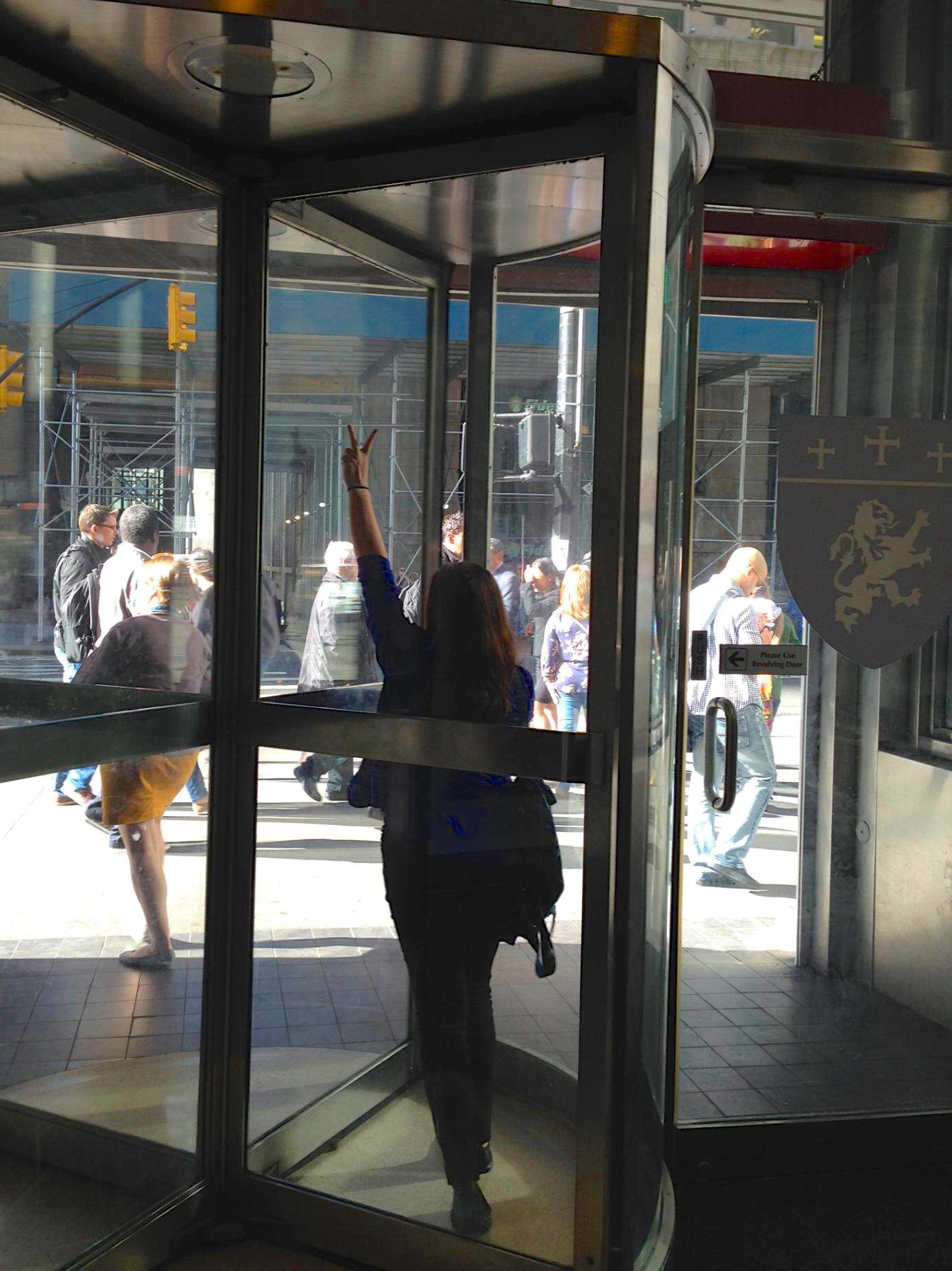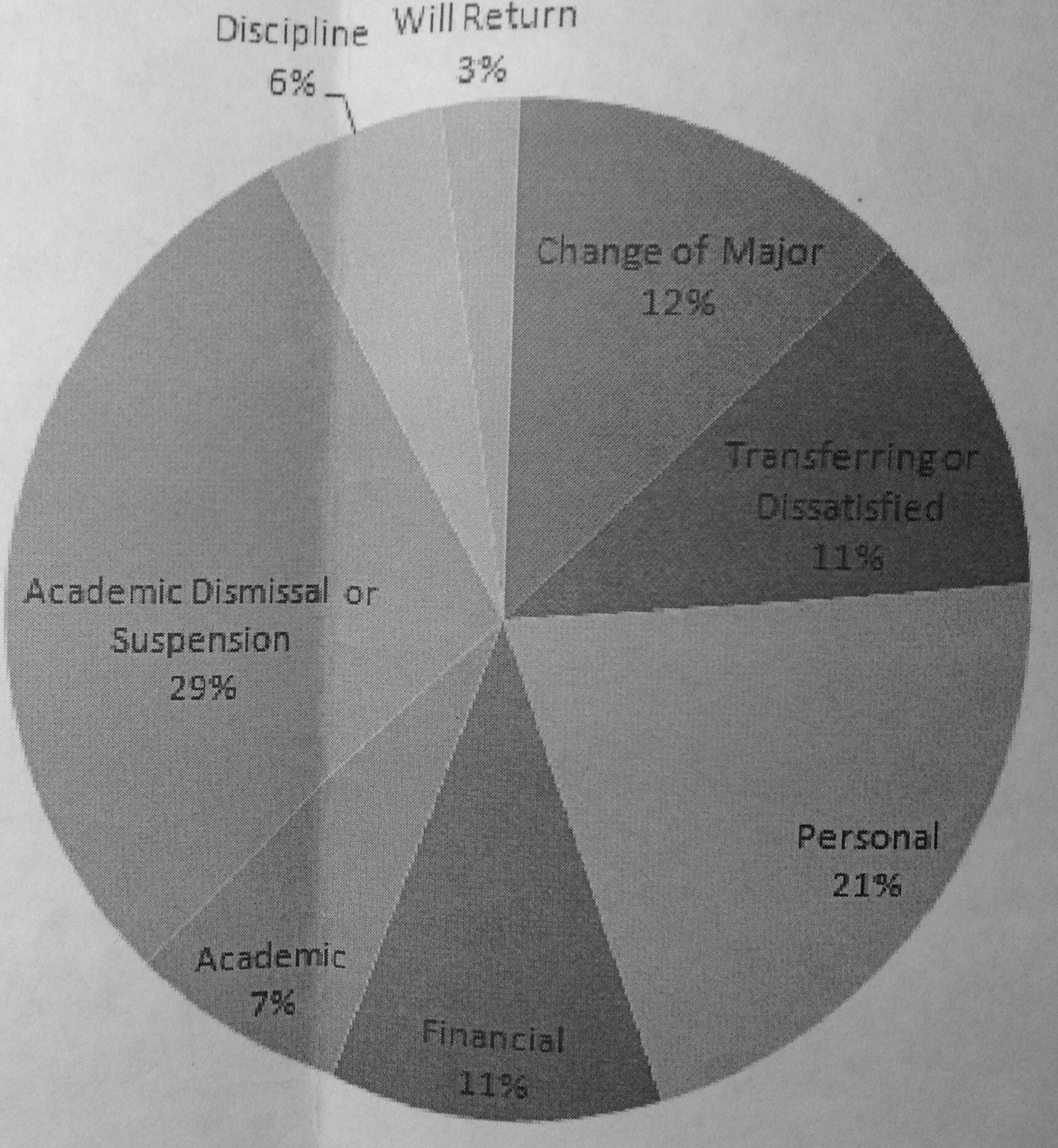Sixty percent retention for 2012-2013, majority who left dismissed or suspended
Financial District, NEW YORK--Due to difficult events last year for King's, the 2012-13 retention rate dropped to 60 percent, over eight percent lower than the previous two years. Of the 40 percent of students that left King’s last year, 29 percent left due to academic dismissal or suspension. Among the 29 percent were students who left because their GPAs were below a predetermined standard for each class (freshman, sophomore, etc.), as defined by the college handbook. Specific standards include passing College Writing I (two attempts are allowed) and any other classes that can only be taken a limited number of times before academic dismissal.
The other 11 percent of the student body left because they were "dissatisfied" and/or decided to transfer. According to director of student services, Jennifer Tharp, these students were generally not satisfied with their grades, although their GPAs may not have been quite low enough to warrant a dismissal. Others who found that they would have had to repeat a certain class multiple times ultimately concluded that King’s was not a fit for them.
Allison Lawrence (’15), president of the House of Truth believes that Admissions needs to be more selective in acceptance of new students. “Some people come to King’s for the city, not the school or the vision, and end up leaving. The academic rigor of King’s needs to be more emphasized at Inviso,” Lawrence said.
Sophie Simunek (’14), president of the House of Barton shares Lawrence's view. “Some of the causes of low retention rates have to do with how the school is presented. People decide to leave or fail out because they don’t understand how academically rigorous King’s is. It’s not just for people who want to be in New York, it’s for people who are in line with the vision of the school,” she said.
To combat this factor, the Office of Admissions fortified their admission strategy to focus on regional admissions, which includes allotting multiple regional counselors.
“The focus on regional admissions is great because people from a certain area can contact and connect with other people from that area to talk about how they feel about King’s,” Lawrence said.
Dean David Leedy says that this year's freshman class (2017) size was intentional. “This year’s incoming class was much smaller, a reflection of our tighter admissions standards,” he said. “Current applicants now have to write a reflection on the college mission and complete an essay as part of the admissions process, which will screen out students and help to ensure that those who do come to King’s better understand the school before they arrive.”
The 2012-13 school year was especially tumultuous, contributing to the drop in retention. But the new executive team at King’s is planning to increase retention rates, and upperclassmen are confident that a greater percentage of the freshman class of 2017 will remain at King's than the classes before them.
Last year, King’s experienced the devastating effects of Hurricane Sandy, the loss of its president and a location change from the Empire State Building to the Financial District.
Student Body President Peter Flemming (’14) thinks that these events do not fully explain the retention rate. “While Hurricane Sandy and the D’Souza scandal were factors that contributed to low retention rates, individually they were not the main reasons people left,” Flemming said. “The big buzzwords for what was lacking were school-wide community and spiritual life,” he said.
Catherine Ratcliffe (’14) felt the emptiness as 2012-13 scholar for the House of Thatcher. “I felt like last year was the hardest year in terms of enthusiasm and school pride. It was the lowest year of school pride that I’ve ever seen at King’s on every level,” Ratcliffe said.
After hearing many complaints, the faculty at King’s are working to improve retention rates and foster a deeper sense of fraternity.
Jennifer Tharp says King's has introduced a three-pronged approach, consisting of more community-wide events, an edited first year course map and new features for spiritual life. For example, the college administration reinstated the Foundations seminars for the freshmen class and adopted a liturgical calendar to advocate spiritual growth.
“The first year experience and the spiritual life experience that students have at King’s are both critical for personal well being, and being a part of a certain kind of community,” Tharp said.
With the refined admissions process, the introduction of new or reinstated elements of student life and the election of a new president, many faculty members and upperclassmen are hopeful that this year’s incoming class will choose to stick around.
Ratcliffe said, “With the current incoming class, I think that every first year this year is much more carefully selected. They all feel like they fit at King’s more than any other class I’ve seen at King’s - even better than my own. I feel like this class most uniformly represents the King’s vision and mission better than any class I’ve seen.”
“I expect to see a sizable jump in retention this year,” Leedy said.



